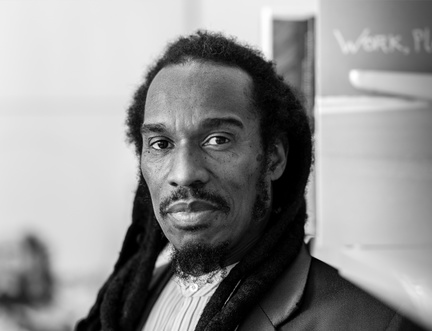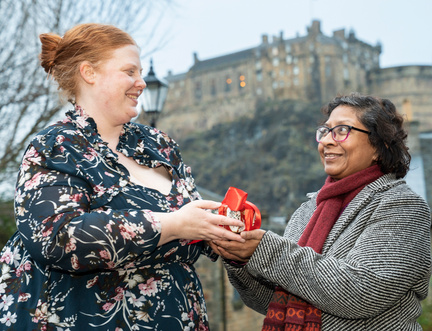More articles Monday 19 August 2019 1:00pm
“I think racists now have just gotten a lot more sophisticated,” says Benjamin Zephaniah.

“When I say they’ve got more sophisticated now – racists – it’s that they’re wearing suits and ties. They’re in positions of power. When I see Nigel Farage... I look at the people behind him. Look at his security, those are the National Front guys I was fighting in the seventies and eighties.” The versatile poet, playwright and author Benjamin Zephaniah discussed his new autobiography The Life and Rhymes of Benjamin Zephaniah at an event chaired by presenter Gemma Cairney at the Edinburgh International Book Festival.
The conversation quickly turned to the fractious state of British politics and the rise of the political right in a divided country. A reality that has caused Zephaniah to look back on his experiences growing up as a black man in Birmingham during the rise of organisations like The National Front.
“I thought for a while, probably around the mid-nineties to the late nineties, that [racism] was over and I’m going to kind of sit back and relax… And then UKIP happened and the EDL happened and people started going into their tribes... so I do feel the political and spiritual need to talk more, write more. More than ever now. They didn’t disappear.
“The interesting thing now, is if you look at the people in power, not just in Britain and America – which is the obvious one – but in lots of other places around the world, you have these racist, sexists, homophobic people and they’re in power and all the racists and the homophobes and the sexists can say, ‘we run things. Our people are in power. This is our time’.
“It’s interesting that these are the people now, who are talking about the need for freedom of speech.”
As a child of Caribbean immigrants during the Windrush generation, Zephaniah grew up in an England focused on race and identity. He concludes that it’s natural that these factors would work their way into his art, saying, “I think anybody who thinks there’s no place for politics in music and poetry and art, comes from a place of privilege. They’re privileged enough not to need to put that stuff in their art. We need to.”
“When I started writing in Birmingham. There were no black people in politics, in parliament and all that. Very few black people on television. The political people that we knew that were black, Angela Davis and Martin Luther King and all those people, were from America. So the idea of me leaving the ghetto of Handsworth and going onto television and performing a poem about beautiful daffodils… I couldn’t go back to my community and they’d say: ‘Well you had a moment to express yourself, what did you say brother?’ ‘There’s some beautiful daffodils’.”
Zephaniah touched on the close relationship he has with his mother, a retired nurse who experienced domestic violence at the hands of his father, eventually running away with a then nine-year-old Benjamin, saying, “My father kind of hated us because we stuck together. So when my mother ran away it was just natural to run away with her.
“I've seen her homeless… I remember the days she would knock on the doors of women’s refuges and they’d say ‘we understand your condition completely, but in this building we have a lot of white women and we don’t know if they would accept you’.”
For Zephaniah, it’s important that the work of black artists transcends the allotted slot of Black History Month in October and is fully integrated in our culture. “The history of black people is for everybody. Every day of the year and our writing just has to be taught in our culture. Not this little ghetto.”
- 2025 Festival:
- 9-24 August
Latest News
 Communities Programme participants celebrate success of 2024
Communities Programme participants celebrate success of 2024



